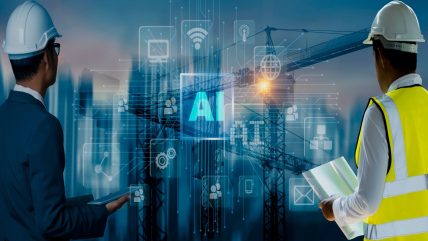
The Royal Institute of British Architects (RIBA) has released a report indicating that 41% of UK architects are currently using AI in their projects.
It also states that 43% of these professionals acknowledge an increase in design process efficiency due to AI.
The report is based on a survey that explored current and future AI usage within the sector.
Within the next two years, approximately 54% of the architects surveyed anticipate their practices will adopt AI, with 57% predicting improved efficiency in design processes.
About 69% reported that their practices have not yet invested in AI research and development, and 41% expect future investment in this area.
The report highlights the potential of AI in addressing the challenges of sustainable urbanisation.
Environmental sustainability analysis through AI is expected to be employed by 57% of architects in the coming two years.
Additionally, 49% noted that advanced digital tools, including AI, are required to manage the increasing complexity of buildings, which include climate adaptations and smart technology.
However, 58% of architects stated that AI could increase the risk of their work being replicated.
As per the survey, the profession’s stance on AI as a job threat is divided, with 36% viewing it as a threat, 34% not viewing it as a threat, and 30% remaining neutral.
RIBA president Muyiwa Oki said: “Our findings show architects are curious and open-minded about AI, and some of us are true pioneers. By fostering interdisciplinary collaboration and a culture of responsible innovation, we can harness the power of AI to create a more inclusive, resilient and sustainable built environment. There’s no turning back.
“RIBA’s new expert advisory group on AI is building on the findings of this report to look at the broader ethical, professional, and competitive implications of the widespread integration of AI.”
Surveyed architects stated that the lack of regulations leaves ethical risks, spanning intellectual property, design creativity, employment, and potential impacts on the built environment.



